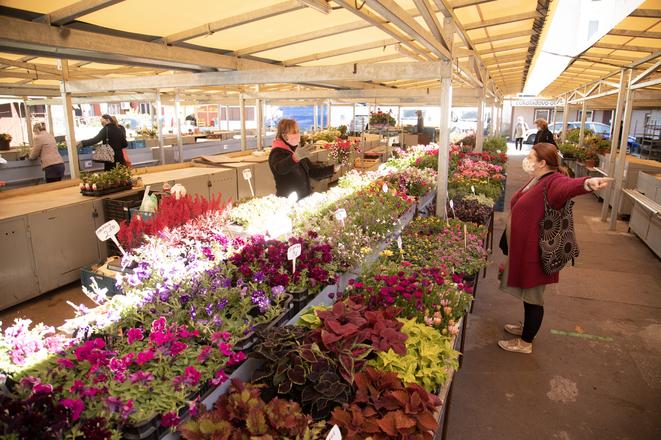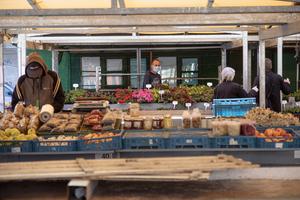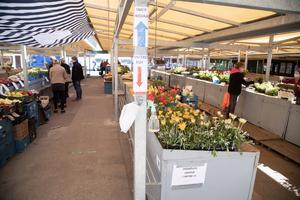Our paywall policy:
The Slovak Spectator has decided to make all the articles on the special measures, statistics and basic information about the coronavirus available to everyone. If you appreciate our work and would like to support good journalism, please buy our subscription. We believe this is an issue where accurate and fact-based information is important for people to cope.
Outdoor markets in Slovakia opened on April 22, as part of the first phase of liberating the measures adopted to slow the spread of the coronavirus pandemic.
>> Read how phases of loosening measures will look like.
The markets still need to observe several rules. This includes one direction for shopping, wearing masks, disinfecting places and maintaining at least a two-metre distance between people.
If they violate the rules, they may be fined with up to €20,000, the TASR newswire reported.
One of the first markets to be opened in Bratislava is the Žilinská Marketplace in the Old Town borough.
“We are asking visitors to follow the rules,” the borough stated, as quoted by TASR newswire. “Otherwise, there is the threat that the Public Authority Office will close the market.”
The popular marketplace Miletička in Ružinov could open again on Friday, April 24, said Tatiana Tóthová, spokesperson of the Ružinov borough.
What shops and services can be open?
Shops with a size of up to 300 square metres;
Services with a size of up to 300 square metres;
Public catering (through a window);
Outside sports venues (contactless sports, without changing rooms, without audience, without WC);
Outside marketplaces;
The selling points of vehicles, including used cars.
New measures in place
The new measures enabled the opening of the following:
stores selling food and beverages, including mobile shops, without the possibility of eating or drinking there, as well as drug stores, pharmacies, places selling medical equipment and opticians;
selling points for newspapers and other print press, shops selling animal feed and vet clinics, telecom branches, restaurants, fast food stalls, and offices providing postal, banking, insurance and leasing services;
brick-and-mortar units of online shops where people can take their orders, delivery services, laundromats and dry cleaners, petrol stations, car washes, funeral services and crematoriums;
car repair shops, tyre shops, towing services, vehicle inspections, operations checking the originality of and installing gas devices, and repair shops for computer and telecom technologies;
lawyers, notaries, court distrainors, bankruptcy administrators, mediators, auctioneers, experts, interpreters and translators, geodesists, gardeners, plumbers and other manual workers working outside;
key services and footwear repair shops, scrapyards, landfills, haberdasheries, shops selling and repairing bicycles and prams, florists, garden centres, shops selling building and installation materials, ironmongers, paint shops;
accommodation services offering long-term accommodation, without providing catering services or quarantine accommodation.



 (source: SITA)
(source: SITA)


